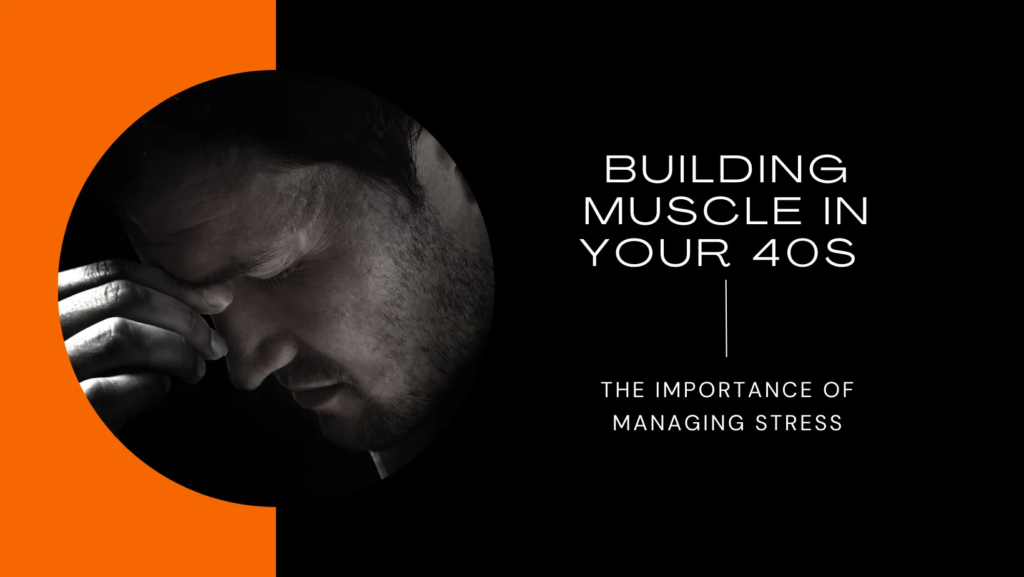Understanding Stress and Its Impact on Muscle Gain
Stress is an inevitable part of life, but it can take a toll on your overall health, including your muscle-building goals, when it becomes chronic or overwhelming. When you’re under stress, your body releases cortisol, a hormone designed for the “fight or flight” response. While cortisol is essential for survival, chronically elevated levels can lead to muscle protein breakdown and hinder muscle growth. Additionally, stress can disrupt sleep, increase inflammation, and lead to unhealthy eating habits—all of which can derail your muscle gain efforts.
Understanding Stress at the Hormonal Level
Stress is a natural and adaptive response designed to help us cope with life-threatening situations. At its core, it triggers the release of stress hormones, with cortisol being a key player. When you encounter a stressful situation, your body’s “fight or flight” response is activated. This response is designed to prepare you for physical action, like escaping a predator or dealing with a sudden threat.
The Role of Cortisol
Cortisol, often referred to as the “stress hormone,” serves several vital functions in the body, especially during times of stress:
Energy Release
Cortisol helps mobilize energy stores, primarily in the form of glucose, to provide the fuel needed for immediate physical action.
Immune Response
It plays a role in dampening the immune system’s response, which is helpful in the short term to redirect energy to immediate survival needs.
Inflammation Control
Cortisol helps regulate inflammation, reducing swelling and pain associated with injuries or infections.
Emotional Regulation
Cortisol influences mood and emotional responses, helping you stay alert and focused in a crisis.
The Original Purpose of Cortisol
In our evolutionary history, cortisol’s role was critical for survival. Imagine a scenario where our ancestors encountered a lion in the wild. In this life-threatening situation, cortisol played a pivotal role. It initiated a series of physiological changes:
Heightened Alertness
Cortisol sharpens our senses, making us hyper-aware of our surroundings. This helped us detect the lion’s presence and react quickly.
Energy Mobilization
Cortisol triggers the release of stored glucose into the bloodstream, providing an immediate energy boost to facilitate either fleeing from the lion or fighting it off.
Pain Suppression
Cortisol reduces the perception of pain, allowing us to continue moving despite potential injuries.
Alteration of Taste
In an astonishing twist, cortisol can alter the taste of our skin. This phenomenon, known as “skin flavouring,” may have served as a defence mechanism. When predators like lions catch their prey, the altered taste of the prey’s skin could make it less appealing as a meal, potentially giving the prey a chance to escape.
Effective Stress Management Techniques
Exercise
Regular physical activity is one of the most effective stress-busting strategies. Exercise releases endorphins, natural mood lifters, and promotes relaxation.
Mindfulness and Meditation
These practices can help you manage stress by bringing your attention to the present moment, reducing anxiety, and enhancing emotional well-being.
Breathing Exercises
Deep breathing exercises, like the 4-7-8 technique, can help calm your nervous system and reduce stress.
Time Management
Organizing your tasks and setting realistic goals can help reduce stress related to work or daily responsibilities.
Social Support
Sharing your feelings and experiences with trusted friends or family members can provide emotional support and alleviate stress.
Nutrition and Stress Management
Your diet can also play a role in stress management. Consuming a balanced diet with plenty of fruits, vegetables, whole grains, and lean proteins provides essential nutrients that support stress resilience. Additionally, certain foods, like those rich in omega-3 fatty acids (found in fatty fish, flaxseeds, and walnuts), can help reduce the physiological response to stress.
Conclusion
Effective stress management involves understanding the hormonal aspect of stress and its original purpose in protecting us from immediate threats, even to the extent of altering the taste of our skin in life-threatening situations like encounters with predators. Cortisol, the “stress hormone,” plays a vital role in this response but can have detrimental effects when chronically elevated due to modern-day stressors. By incorporating stress-reduction techniques like exercise, mindfulness, and relaxation into your daily routine, you can mitigate the negative impact of chronic stress on your body.
Remember that managing stress is just one part of the puzzle. Addressing the other critical factors, including nutrition, previous training experience, sleep, and hormonal balance, will further enhance your muscle gain journey. Taking a holistic approach and prioritizing stress management will unlock your full muscle-building potential and achieve your fitness goals in your 40s.

